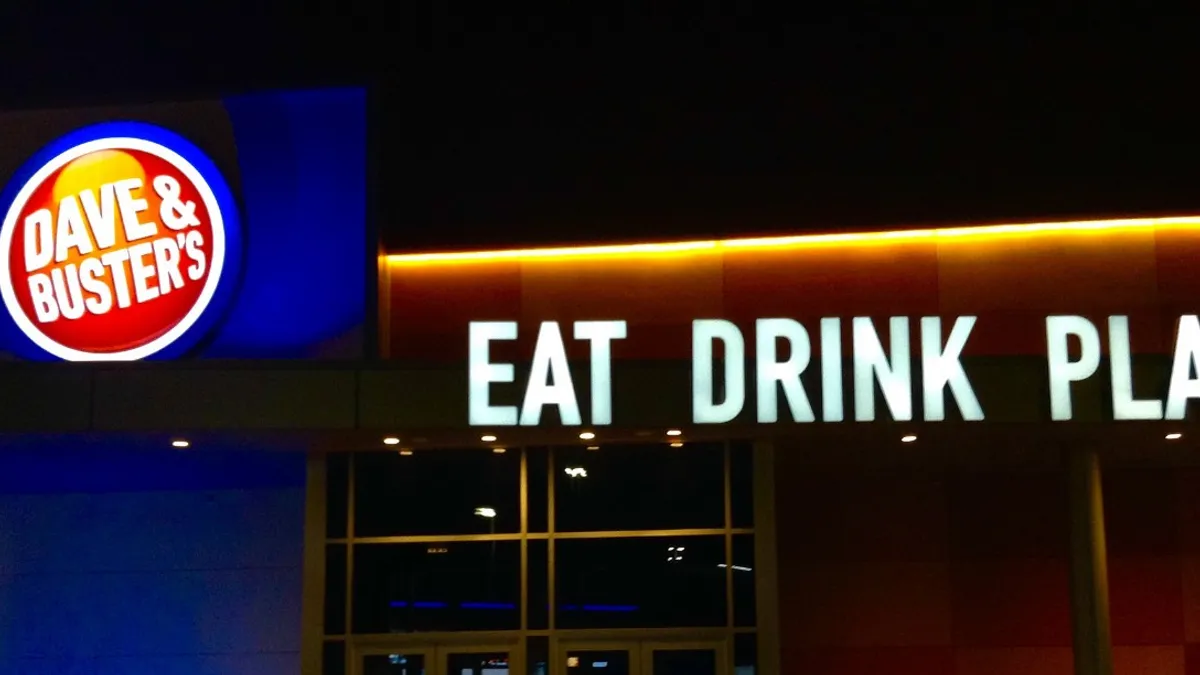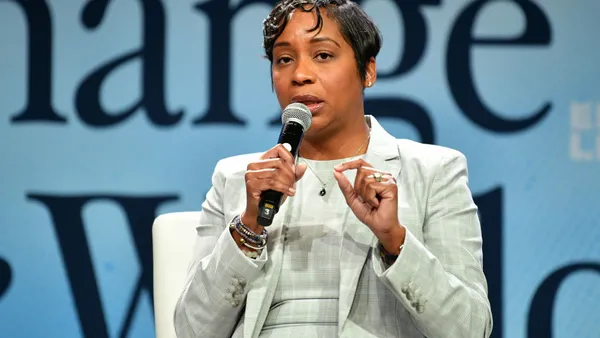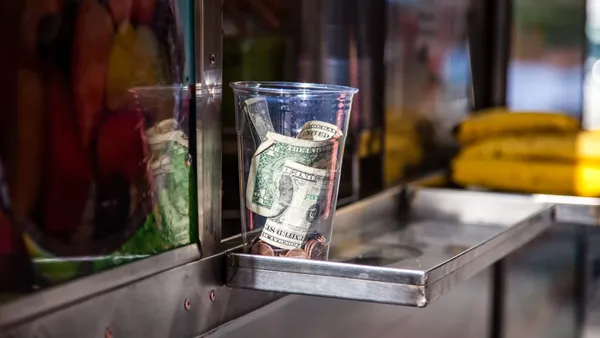Dive Brief:
- Dave & Buster's has filed a lawsuit against New York Gov. Andrew Cuomo over the state's decision to close arcades as part of COVID-19 safety protocols, according to a complaint filed in the U.S. District Court for the Northern District of New York on Feb. 3. The 139-unit chain calls the move "arbitrary," citing the state's allowance of similar businesses, including casinos and bowling alleys, to stay open during the pandemic.
- Cuomo announced Wednesday that indoor entertainment centers like Dave & Buster's could reopen at 25% capacity starting on March 26 with proper social distancing and masking procedures in place.
- There are 11 Dave & Buster's locations in New York state, and the chain has had to furlough substantially all of the 1,200 employees across these locations as a result of mandated closures. The chain expects its 27 stores in both New York and California to remain closed for the rest of the quarter, and those two states generate about 25% of total sales for the company, executives said during the company's Q3 2020 earnings call.
Dive Insight:
Dave & Buster's notes in its lawsuit that New York state has "never publicly explained how arcades are meaningfully different … in the context of COVID-19" from similar businesses allowed to continue operating. Bowling alleys have been open since Aug. 17, for example, while casinos were permitted to open on Sept. 9 and movie theaters began operating at 25% capacity on Oct. 23, according to the suit.
"In fact, the similarities between casinos and arcades are so patent that no other state government currently requires [Dave & Buster's] to keep its arcades closed while allowing casinos in that state to reopen," the chain states in its complaint.
The company is asking for an injunction against closures while similar businesses are permitted to operate, arguing these closures violate the First and 14th Amendments of the Constitution. Dave & Buster's also argues that its large store footprints "naturally allow for greater social distancing." For context, Dave & Buster's sites are typically either 26,500 square feet or 40,000 square feet. This is compared to the average quick-service restaurant, which is usually between 3,000 and 4,500 square feet. New York restaurants are currently allowed to host customers in their dining rooms at limited capacity.
In the announcement about reopening arcades, Cuomo said New York bases its decisions on "science and data and adjusts as the virus adjusts."
"With continued decreases in the infection and hospitalization rates, we have been able to take steps toward beginning our post-COVID recovery and we are excited to now be in a place where we can bring back our recreational industries with safety protocols in place," he said.
Dave & Buster's, like most eatertainment concepts, has struggled through the past year of closures and capacity limits. The chain's first nine weeks of its fiscal Q4 yielded a 75% decline in comp store sales.
The chain's lawsuit joins a long list of other suits lobbed against Cuomo's office for shutdowns and other pandemic-related regulations. Newsweek reports more lawsuits have been filed against Cuomo's office than any other governor, and several of those complaints have been filed by restaurants. In January, for example, a group of 70 New York bars and restaurants filed a lawsuit alleging New York's evolving dining regulations violate their civil rights. A $500 million class action suit was also filed in September to increase indoor dining capacity to 50%, but it was later thrown out. And, in December, several restaurants sued again over the indoor dining ban.













